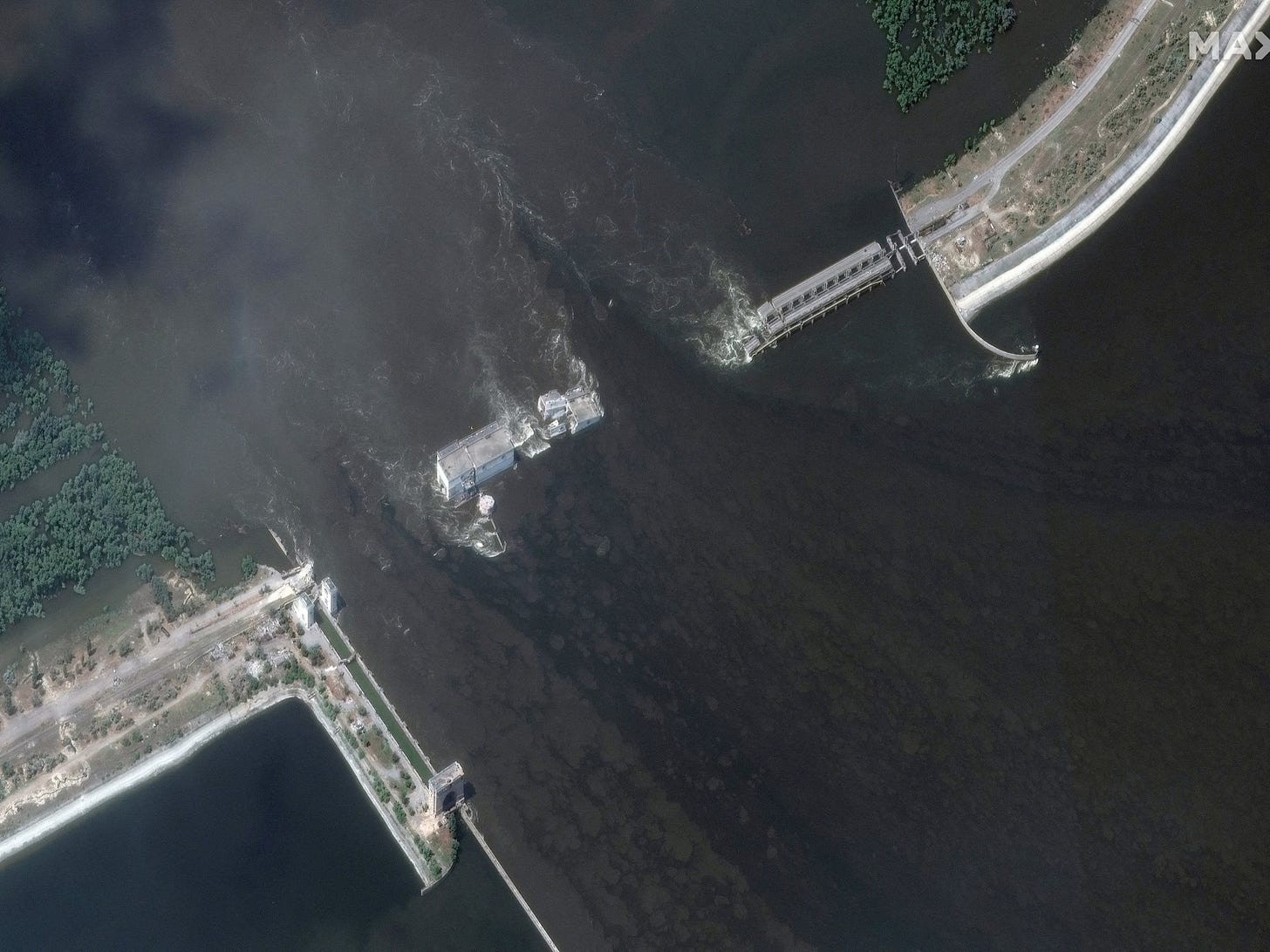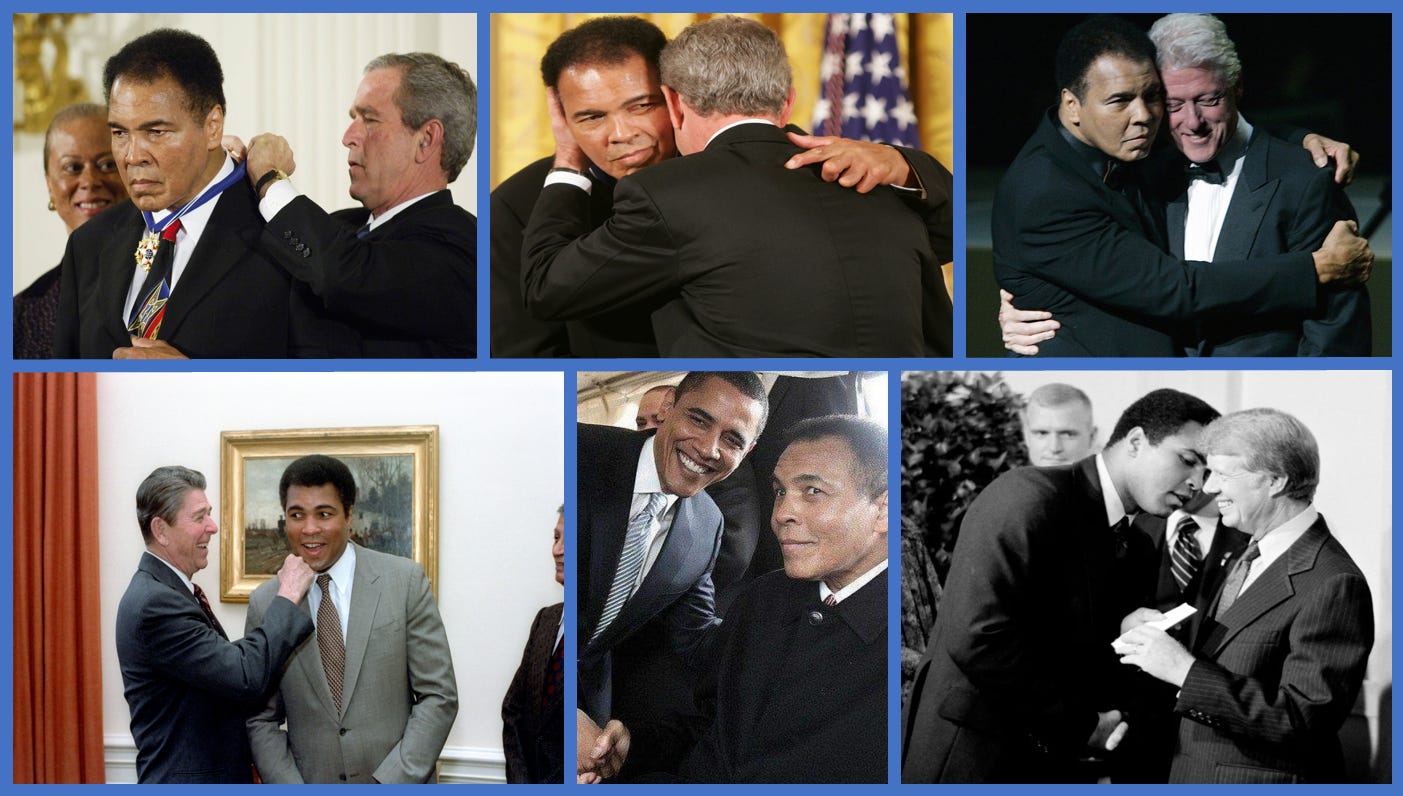This article aims to better understand the nature of the United States anti-war movement in the context of accelerating US militarism today. Specifically the movement in regards to the US war on Vietnam, the US-led invasion of Iraq in 1991, and the ongoing US-led NATO war against Russia.
From the lens of Historical Materialism, political practice is defined primarily in bifurcation as "reactionary" or "progressive". A progressive political action promotes the development of society and triumphs in the liberation of the people by hastening the resolution of social contradictions. A reactionary political action opposes the development of human society and by extension the liberation of the people which manifests as an attempt to maintain the status quo; Reactionary forces aim to perpetuate the social contradiction to garner profits off of exploiting people as much as possible for as long as possible.
Sammy Ismail — Anti-imperialism: the highest stage of class-struggle
On May 13th, 2023 Germany announced they would be sending 2.7 billion euros worth of weapons to Ukraine, the largest German package yet. The UK recently sent ‘Storm Shadow’ cruise missiles (with US approval of course) along with Depleted Uranium (DU) ammunition that is known to cause long term health and environmental damage. Contrary to Western propaganda, the DU rounds promptly became an environmental catastrophe and a radioactive cloud is blowing over Europe.
For its part, the Biden regime announced another $2.1 billion dollars of weapons on June 9th, following $300 million of weapons on May 31st, only ten days after $375 million dollars of weapons on May 21st 2023, less than 2 weeks after a $1.2 billion dollar “aid package” on May 9th, which itself was less than a week after a $300 million package earlier on May 2nd. This follows a $400M package and a $350M package in March, a $325M package in April.

Ukraine and Western Russia are being utterly destroyed and depopulated every day the war drags on. The US has consistently sabotaged any possibility of negotiations between Russia and Ukraine. EU Foreign Policy chief Josep Borrell even admitted in March that if the West stopped arming Ukraine then the war would be over “in a few days”.
At the behest of the US and UK, the Kiev regime has escalated significantly this past month—carrying out attacks inside of the city of Moscow with explosive drones, including attacking the Kremlin itself! This is of course using US-NATO technology, intelligence, and targetting data.1 Imperialist media—still covering up the destruction of Nordstream pipeline—continues to hide US-NATO responsibility.

On June 6th, 2023 the Novaya Kakhovka Dam in the Kherson region of Russia2 was destroyed. In another extreme escalation, the Kiev junta the had “intentionally began to drop water on the upstream dams on the eve of the attack”.3 The ensuing devastation has been enourmous.
We are left wondering, while their government is waging war on nuclear-armed countries, what is the Anti-War Movement inside the United States doing?
The remainder of the article will be broken into a few parts:
1. America the Warmonger & the Legacy of the contemporary American Anti-War Movement
2. Anti-War History: Vietnam
3. “Dialogue” and Deception — the Case of Iraq
4. Since 2022, what has the Anti-War Movement done to stop US escalation against Russia?
5. Why is the American Anti-War Movement such a failure?
America the Warmonger & the legacy of the contemporary American Anti-War Movement
America is a country defined by War. It was birthed from war, exterminating tens of millions of Natives to “empty the land”. It has spent 229 of its 247 years of existence in open conflict.
It currently controls a network of over 800 military bases around the planet. According to a March 2022 report by the US Congressional Research Service, America has carried out a boggling 251 foreign military interventions since the end of the Cold War in 1991, and thats just the ones they officially acknowledge.
For the purpose of this article, we will use a definition of imperialism based on the analysis of Ali Kadri and Matteo Capasso4:
[I]mperialism is a set of material relations of exploitation between countries of the global North and South, which takes places through class collaboration. Unequal accumulation of value then depends more and more on the degree imperialist countries oppress and exploit developing countries. … This historically-established unequal accumulation of value does not only entail the pile of commodities, natural resources, and their corresponding ideas. It also consists of the pile of dead bodies and destruction of nature that is produced through the process of accumulation and extraction of capital.
US-led imperialism is system built on death and devastation. War is woven into the very fabric of America because it is the primary way through which capital can accumulate more profits. In truth, “the slaughter of the [Global] South always has been the prime industry of capital since the 14th century”5. America has simply taken up the mantle of the British empire and other European colonial powers.
Consequently, America is constantly waging war against the entire planet through a variety of means including Kinetic Warfare (missiles/guns/bombs) as well as Hybrid Warfare methods like economic, psychological, cyber, etc.
For our purposes let’s focus on kinetic warfare since it is the most visible form of imperialist war:
8+ years into the siege of Yemen—has the American anti-war movement stopped a single arms transfer to the United Arab Emirates or the Kingdom of Saudi Arabia? Did it lift the blockade of Yemen for any amount of time?
9+ years into the war in Ukraine—has the American anti-war movement stopped a single missile or rocket from being delivered to the Kiev regime?
12+ years after the invasion of Syria—has the American anti-war movement stopped a single sanction against Syria or a single drop of oil from being stolen?
15+ years after the establishment of AFRICOM—has the American anti-war movement stopped a single base from being built or a single drone strike?
20 years into the occupation of Iraq—has the american anti-war movement exacted any justice against those responsible for over two million dead Iraqi people or the dozens of NATO torture facilities?
These questions are rhetorical but expose the basic reality of contemporary anti-war politics inside the United States. That reality is this: the anti-war movement inside the United States has not stopped or even slowed the imperialist war machine in over 30 years.
While modern activists appeal to the success of anti-war activism during the 60’s and 70’s in order to bolster their own legitimacy, they commonly misrepresent reality.
Anti-War History: Vietnam
Contemporary anti-war activists point to the Vietnam war as proof that anti-war activism can be successful. However, contrary to popular belief, the war on Vietnam era anti-war movement was not successful due to college campus protests and non-violent petitions. As historians E. Tani and K. Sara point out6:
Nixon and Kissinger, die hard warmongers if ever there were any, didn't pull the troops out of Vietnam because they wanted to. U.S. imperialism was forced to pull its occupation force out of Vietnam because the military was literally starting to come apart, at the brink of mass mutinies and armed rebellions.
Soldiers inside the military were fighting back against their commanders. GI’s were carrying out widespread ‘fragging’ against their commanding officers in response to racial oppression and declining morale.7 ‘Fragging’ consisted of low-ranking soldiers killing their officers—often by throwing fragmentation grenades into their tent or latrines.
New Afrikans carried out dozens of riots in US military bases including, in one instance burning down an Officer’s Club.
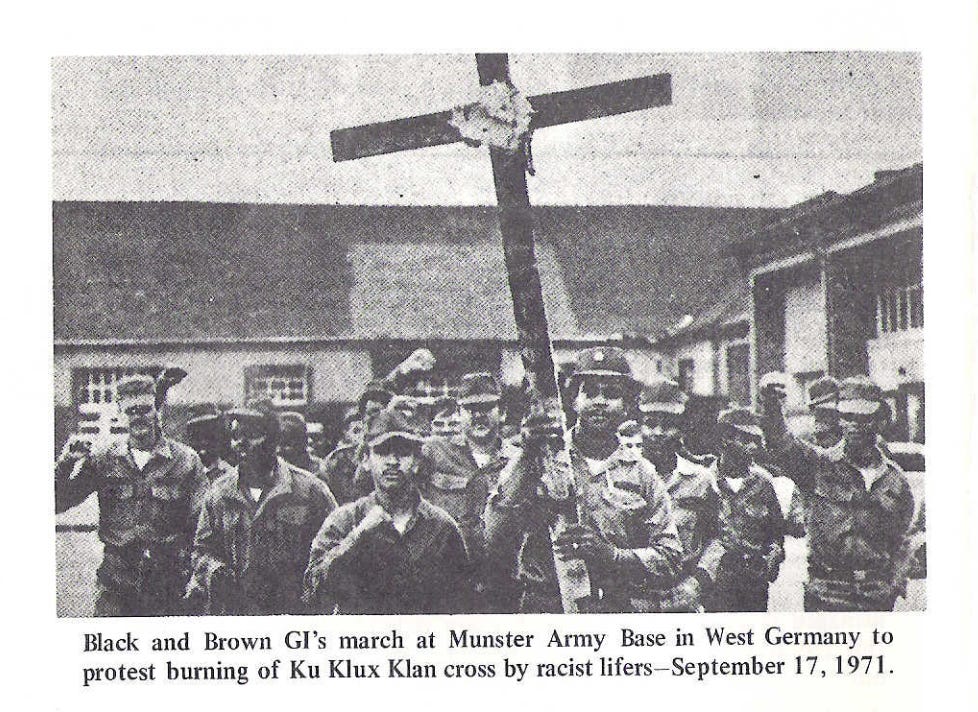

These mutinies were not the sole reason for the retreat of imperialism from Vietnam (history is rarely that simple, and we should not dismiss the incredible victories of the National Liberation Front and Vietnam People’s Army). However, the importance of this internal fracturing cannot be understated.
Following the mutinies and fracturing during this period, the US military began implementing policies “to address discrimination and promote equal opportunity”.8 The Housing and Urban Development program cites that quelling discontent among families of non-white veterans was a major reason for passing the Fair Housing Act in 1968.
Essentially, the US military learned its lesson and effectively used neo-colonial strategies, in tandem with subsidized home loans and other perks, to integrate New Afrikan and other colonized soldiers into a “Professional” War-Class that would never again turn the gun against their masters. (This multiculturalist approach is the origin point and lineage of the US military using “drag queen influencers to attract diverse talent” and teaching officers Critical Race Theory—although this is beyond the scope of the current article.) Despite, or because of, the enduring vitality of US imperialism the anti-war movement receded into irrelevance.
Two decades later, against the backdrop of a crumbling and defeated USSR, the NATO-nazis began their next phase of imperialist warfare. They set their sights on West Asia first.
“Dialogue” and Deception — the Case of Iraq
The modern manifestation of the US anti-war movement began around 1990 to protest the American invasion of Iraq. It was around this time that the International Action Center, a central actor of the modern anti-war movement, was founded by Ramsey Clark. Therefore, it is necessary for us to return to that time in history in order to understand the present moment.
The Islamic Revolution of 1979 meant the US and its zionist entity proxy lost control over a valued oil reserve in Iran. In response, the US encouraged Saddam Hussein’s Iraq to invade Iran in what is known as the ‘dual containment’ strategy. Iraq received ‘economic aid’, weapons and intelligence from both the US-led imperialists and the USSR as well as taking on some $37 billion in loans from Gulf creditors. As a consequence after the the extremely costly 8 year war the Leftist and Pan-Arab opponents of world imperialism were reduced organizationally and Iraq was suffering from extreme financial difficulties with three decades of Iraqi developmental gains wiped out.
In August 1990, Iraq attacked Kuwait, a small monarchy on its southern border that had, up until late 19th century been previously a part of it. President Saddam Hussein of Iraq accused Kuwait of ‘slant drilling’ into Iraqi oil fields and stealing Iraqi oil. Kuwait refused Saddam Hussein’s request to stop the drilling and wipe $15 Billion of Iraqi debt as compensation.9 After a 3 day battle, Iraq emerged victorious and annexed Kuwait as the 19th province of Iraq.
Regardless of whether the takeover was ‘justified’, it was the British who had originally partitioned off Kuwait from Iraq in 1899 and it was the US that had prompted Saddam Hussein to attack Iran in 1980. Western powers have no place inserting their militaries to arbitrate such territorial disputes (those who believe otherwise are imperialists).
Of great concern to the United States and other imperialist powers was that Iraq had captured American and British (and other countries) citizens in Kuwait and was keeping them as leverage to deter an American invasion. Specifically, the Iraqi military held some of them in various bases around Iraq as insurance against the US bombing these military installations.
The US embassy frantically tried to get the hostages released. A long interview by Joseph Wilson, acting head of the US Embassy in Iraq at the time, outlines the extreme lengths the US government went through to get their citizens out.
By October 1990, Saddam Hussein had released all the women and children, all the French citizens and other nationalities. The remaining hostages were high value British and American men. This is when the US embassy changed their strategy.
Wilson notes that:
The other thing that we tried to do diplomatically — I made this case starting in November — was to say that Saddam should be under no illusion that by holding hostages it was going to prevent war.
The US had previously brought in Jesse Jackson to effectively negotiate the release of small groups10 so they decided to use more high profile “VIP’s” to convince Saddam Hussein to release the remaining hostages.
Stephen Thibeault, a US Foreign Service officer in Baghdad at the time explains11:
Ramsey Clark was another American who was a part of this. I think that the consistent message… of these VIPs to Saddam is that he should release the hostages as a prerequisite for then de-escalating the situation diplomatically. I think that he basically was fooled as, in fact, the hostages were protecting him.
How then did Ramsey Clark fool Saddam Hussein? He claimed that the American anti-war movement would surely stop any potential American invasion.

"Mr. Ramsey Clark emphasized that most of the American people don't want war... Noting that there is a wide movement in its ranks against the war, he said that the US government is ignorant of the will of the American people regarding current events in the region in its call to war through the media. He added that the peace movement in the United States will escalate its struggles to prevent war in the Arab Gulf region." - Al Thawra Newspaper; Baghdad November 12, 1990
It is said that Ramsey Clark backed up his claim with a photo of an anti-war rally a few weeks before.12 Yet, the weekend rally in NYC (the largest one in the country) had no more than a few thousand people present.13
It could hardly be said that this represented a majority or even a critical mass of Americans. Nonetheless, Ramsey Clark told Saddam Hussein that he could rely on American protestors to stop the US from invading Iraq. Clark’s purpose, as we would come to understand was to serve as a hostage negotiator on behalf of the United States government.
In late November, world-renowned Boxer Muhammad Ali was sent to Baghdad for further hostage negotiations, as a way to build credibility with Saddam Hussein and the Iraqi people.14 Ali, a world famous Muslim, received much respect on his visit. According to ex-CIA officer James Kolb, this was not the first time George HW Bush had requested Muhammad Ali to “use your status as a respected Muslim to enter into a secret dialogue…to try to procure the release of the American hostages”.15 (Ali had previously been used by the Carter regime to recruit African nations to boycott the 1980 olympics in the USSR.)
International con-man Brian Becker, another leader in the American anti-war movement, was a part of Muhammad Ali’s visit. His account emphasizes how much the visit was “a threat” to the US government and proved how “negotiations were clearly available as a means to prevent war.”16 Just because parts of the US government ‘denounced the trip’ does not prove anything at all.
This point is evidenced by a 1995 US Navy paper titled Persian Gulf Hostages: A Case Study in Terrorism, Diplomacy, and Strategy which details the United States hostage policy at the time. It had to maintain the facade of non-negotiation to “be tough on terrorists” while engaging in under the table diplomacy to release said hostages.17 The paper also details that while the US and UK publicly maintained rhetoric that they would bomb Iraq despite the presence of hostages, this was an empty threat.18 In essence, the United States needed the hostages released while also saving face.
The reality is that these anti-war activists did the work of the US government by taking hard power away from the Iraqi government. This is regardless of whether they were acting on behalf of the US government (although, evidence indicates they likely were).
Joseph Wilson notes in the same interview that19:
We were successful in getting one or two hostages out every time, and we would try to load up hostages onto every American who came out. It didn’t make any difference to us. The more, the merrier. If we could get 10 out with [boxer] Muhammad Ali, if they promised us 10 we’d go for 12.
In December, Saddam Hussein let the remaining British and Americans leave Kuwait. We Are The Mighty magazine (affiliated with the US military) praises Muhammad Ali for “freeing the hostages” and notes that he received the Presidential Medal of Freedom for his actions.
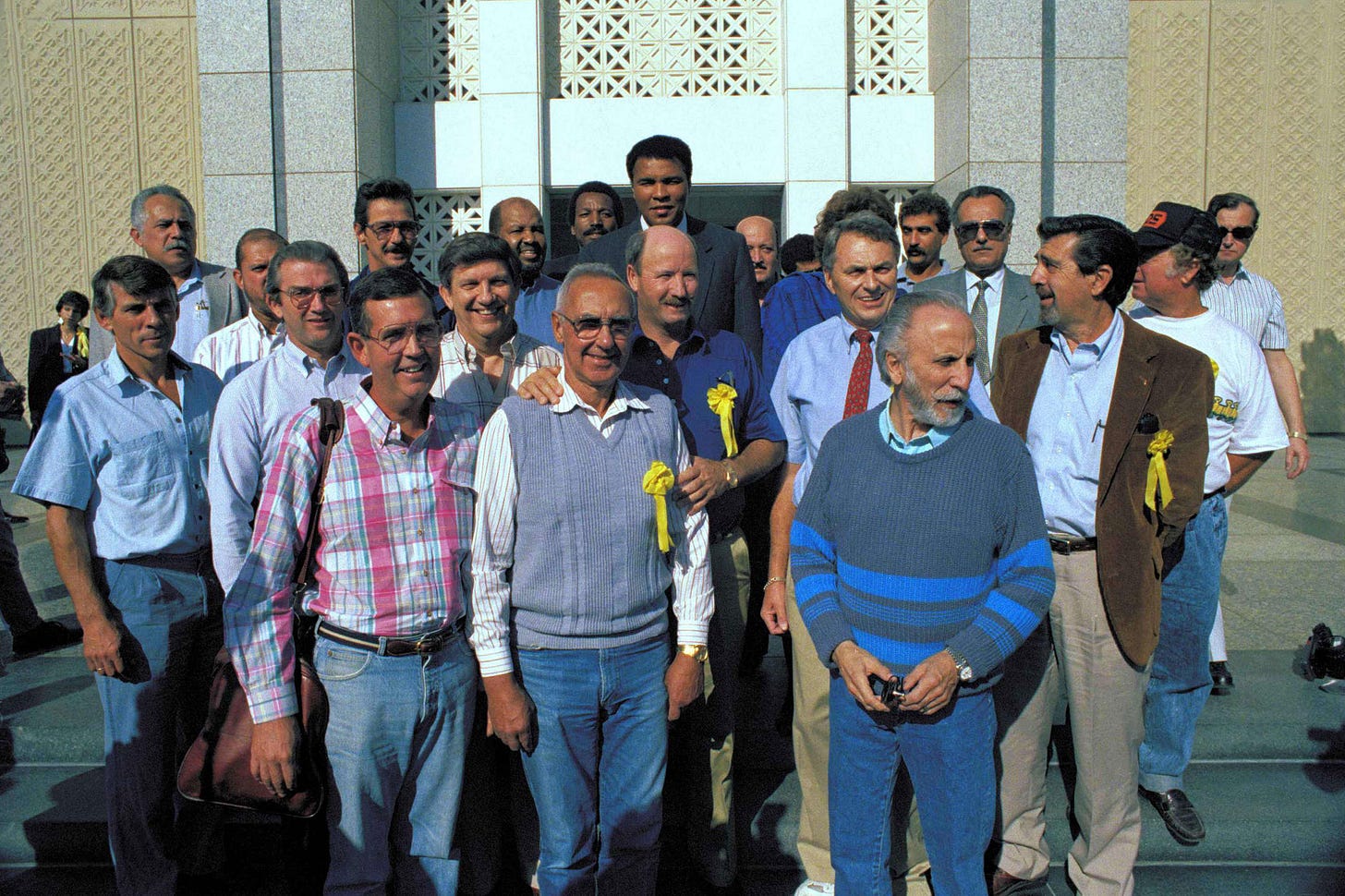
Saddam Hussein gave up the hostages, his insurance against American invasion, based on lies. In January 1991, only six weeks after releasing the American hostages, under the guise of the United Nations Security Council an American-led coalition would begin a horrific bombing campaign and invasion of Iraq.
It is noteworthy that even the New York Times identified how America strong-armed the members of the Security Council into endorsing (or in the case of China abstaining) Resolution 678 to invade Iraq. This included cutting $70 million of aid to Yemen for voting ‘no’ and promising to lift sanctions against China for not vetoing.
This war was an American project through-and-through. The American anti-war movement, for all its bluster, was absolutely powerless to stop the invasion.

Compare this example of Iraq in 1990 to Ramsey Clark’s earlier trip to Iran in 1979. The revolutionary movement in Iran had taken over the American embassy and were holding US spies hostage. The Carter Administration sent Ramsey Clark and William Miller, the staff director of the Senate Select Committee on Intelligence, to negotiate the release of the hostages. However, Ayatollah Khomeini correctly labelled Clark a CIA asset and refused to speak with him.
Newspapers at the time claimed Clark “defied the US government” but his trip was explicitly requested by the Carter Administration. Clark had even attended American anti-Shah protests beforehand in order to boost his credibility.
Thankfully the Iranian Revolution did not fall for his tricks. Because Iran wisely held on to the hostages, the Americans did not invade. Instead, they lost 8 special forces and millions of dollars in equipment in the Tabas desert during an infamous failed rescue operation.
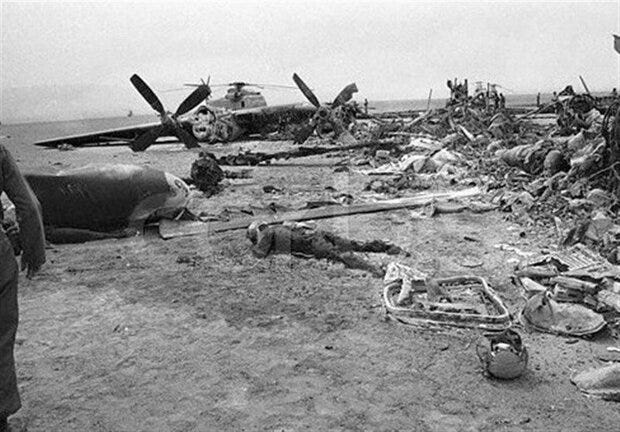
The impotence of the anti-war movement in 1990 would set the precedent of powerless self-congratulatory american anti-war organizations accomplishing nothing. A decade later, the massive rallies against the US invasion of Afghanistan and Iraq did not stop the United States military. In fact, the US still has troops occupying Iraq 20 years later without even token opposition by the anti-war movement, as Lloyd Austin the US Secretary of Defense announced in March “US troops will ‘remain in Iraq.”
There are three lessons to learn from this:
Imperialist war of aggression is not defeated by 'public opinion' or soft power. It is not subject to 'dialogue'. Imperialism is only deterred by hard power and material consequences, including actions unpalatable to pacifists such as the taking of hostages. The end of imperialist wars will only come from the fall of imperialism itself and the foiling of its plots.
The American anti-war activists who propose otherwise—or who attempt to disarm governments (and movements) that are in imperialist crosshairs—are deceivers. Such deception is doing the work of imperialism whether that is intentional or not.
Just because a group or movement or event is ostensibly “opposed” by the US government publicly, does not mean they are any threat to imperialism. In fact, they may even be working in service of imperialism (either knowingly or not).
Madeline Albright says killing half a million Iraqi children was “worth it”. It was not just “worth it”, depopulation is quite profitable for US-led imperialism and its beneficiaries.
Since 2022, what has the anti-war movement done to stop US escalation against Russia?
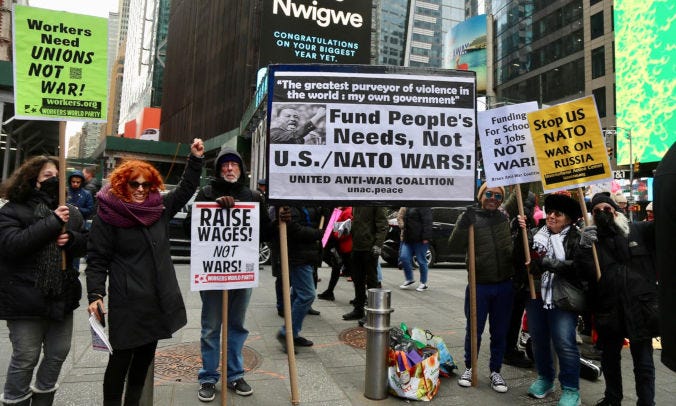
The American anti-war movement has not accomplished much since March 2022.
Besides organizing various “Zoom sessions” there have been a few protests around the United States, but it could hardly be said that they have mass support or momentum. In February and March of 2023, different ‘factions’ of the Anti-War Movement briefly entered the spotlight organizing two distinct protests in Washington.
In March, the ANSWER faction of the anti-war movement led a nationwide protest against war. For an event that supposedly gathered “over 200 peace organizations” the turnout was actually quite small. A generous estimate would put one to two thousand attendees (You can check the footage yourself). Their “nationwide” rallies showed gatherings in several cities consisting of a couple dozen people.
The month prior, a “Rage Against The War Machine” event was held in Washington DC. The sponsors and organizers were different but the message was functionally the same. Around one to two thousand people attended that one as well. (The opportunist Jackson Hinkle—who was the front-runner of this rally—has certainly increased his twitter followers and subscription base.)
There were infighting and conflict between the organizers of the two different rallies, but we don’t really care about their ideological disagreements (as we have previously explored, the ideologies of these groups is largely irrelevant and distracts from the material situation at hand.)
Both of these events used deceptive filming and footage in an effort to make them look larger than they were. But let’s be unreasonably generous and say that between the two events, 10,000 people attended. The anti-war movement had over a year (and let’s be honest they had over 8 years) to organize against the US-NATO war against Russia. And all they could muster is a couple thousand people peacefully marching on a weekend.
Since those two rallies, there has been no sustained movement in regards to the American arming of the Kiev Junta or the escalation of NATO military deployment in the Asia-Pacific.

Compare this to 2003 in which millions of people turned out in NYC, in London, in Paris, in many cities around the world protesting against the invasion of Iraq. Even that number of people didn’t accomplish any goals in stopping the NATO invasion and occupation of Iraq.
This tells us that the ineffectiveness of the Anti-War Movement is not one of “mobilizing enough people” but instead something endemic to the strategy or lack thereof.
Contrast this with the dedication of anti-imperialists like Alexis Castillo. In October 2014, Alexis and his comrades left Spain and arrived in the Donbass to help defend the people against NATO-backed Ukrainian Nazis. Alexis was martyred in October 2022 after 8 years of fighting against imperialism. He and his comrades embodied true internationalism and a true anti-fascist spirit.
The fact that there has been no mobilization of American anti-fascists or anti war activists defending the Donbass is extremely telling. If anything, the American ‘left’ has found itself largely endorsing Nazis.

Why is the American Anti-War movement such a failure?
One primary issue with the anti-war movement inside the imperialist countries, specifically the US, is that it completely misunderstands the nature of imperialist war. War, in all of its forms, is not incidental to the United States government—war is the permanent condition of the United States.
The 'First Gulf War' was not about conquering Iraq but instead about maintaining US dollar hegemony and keeping West Asia in a state of chaos.20 The 21st century invasions of Iraq and Afghanistan were similarly about destroying the region and bolstering NATO contra forces such as ISIS and Kurdish separatist factions.
Similarly, the US-NATO war against Russia is not solely about "winning" in a conventional sense.21 Winning, for US monopoly capital, means carving out a means of greater super profits. Importantly, those super-profits are always passed onto the American labor aristocracy.
American anti-war demands such as "Money for our needs not the war machine" fail to grapple with the reality that wars are the basis of the imperialist economic system that undergirds the social services and other benefits afforded the labor aristocracy and parasite classes inside the imperial core.
For example: the war in Ukraine has led to record breaking profits for the United States energy monopolies. Between the sanctions protectionism and the physical destruction of the Nordstream pipeline, the United States has turned the EU into a captive market that must pay top dollar to import American hydrocarbons.

In the state of Alaska, every citizen receives an annual payout based on the profits of the oil companies. The dividend payout for 2022 was the largest in the history of the program. The American sabotage of the NordStream pipeline was actually quite profitable for the citizens of Alaska.
Indeed it's not just Alaska. A significant portion of those super profits is being used to subsidize American fuel and lower domestic commodity prices. Super-profits never JUST go to the monopolies.
Weapons manufacturing, Semiconductor manufacturing, and a whole host of other industries have seen windfalls and hiring spikes because of the escalating imperialist wars against Russia and China. Biden was not lying when he said “being the arsenal of democracy also means good paying jobs for American workers”.
In this way, it must be understood that the destruction of Iraq, both times, the destruction of Russia and Ukraine, and the US military occupation of the planet is ultimately sustaining the American way of life.
Inflation and depression is effecting almost every country on the planet and this is a larger pattern of the imperialist system, that accelerated following the 2020 Coronavirus pandemic. Marxist economist Samir Amin described this crisis in 201622:
[This] crisis is in the shape of an “L”. The normal crisis is in the shape of a “U”, the economy rises up after the decline. But this crisis is different. There is no way out of the crisis; the only way to get out is to move out of capitalism. There is no other possible solution. Capitalism should be considered as a moribund system. In order to survive it is moving to destruction and to wars.
However, compared to the rest of the world, Americans are relatively insulated from the effects of this. When the United States throws the world economic and trade systems into chaos, it is extremely profitable for monopoly capital. Everyone suffers but the United States suffers much less because it can always print more Greenbacks. The US dollar isn’t backed by gold or commodities, it is simply backed by violence.
It is absolutely not a contradiction that the Biden regime can propose a budget with an expansion of social services AND the largest military budget in history.23
Ending sanctions, ending wars of aggression, ending the dozens of military occupations, ending the CIA/NGO operations around the world would mean ending the imperialist system of value transfer from the periphery to the core (USA/Western Europe/Japan). This would mean the complete collapse of the American economic system and American Way of Life.
The imperialist system of value transfer from periphery to core is predicated on under-development. If the United States was not constantly sabotaging countries around then multipolarity would actually be accelerating faster. There is a false analysis from people who say that the United States war machine is accelerating multipolarity. That is incorrect. The war machine is just forcing a particular way of going about it.
But if the United States were to unilaterally stop sanctioning everyone and stop arming contra groups and stop overthrowing governments and end its global occupation, then countries around the planet would immediately gain an enormous amount of sovereignty and be able to develop and flourish. The imperialist system would utterly collapse. If NATO were stop waging war there would be no more capacity to steal wealth from the periphery and semi-periphery.
[F]or many years now even the workers of those metropolitan countries have benefited from the exploitation and underdevelopment of Africa.
-Walter Rodney — How Europe Underdeveloped Africa
Just like imperialist Mearsheimer argued the US war on Russia is not in the best “national security” interests, the US anti-war movement thinks that US wars of aggression are not the best way to retain super profits for labor aristocracy. That is why they always appeal to imaginary anti-war majority (because the majority benefit from the profits). And its also why support for resistance is minimal.
A recent investigation by the Anti-Imperialist Network confirms this: “If we take the level of income or consumption as an approximate measure of the standard of living, we must continue to conclude the same thing that Emmanuel concluded in 1976: most of the population of the rich countries are today, under prevailing international relations, better off than they would be tomorrow if, hypothetically, world socialism were implemented by decree.”24 Less than 5% of people inside the United States would be richer if global wealth was equally redistributed. See the image below.

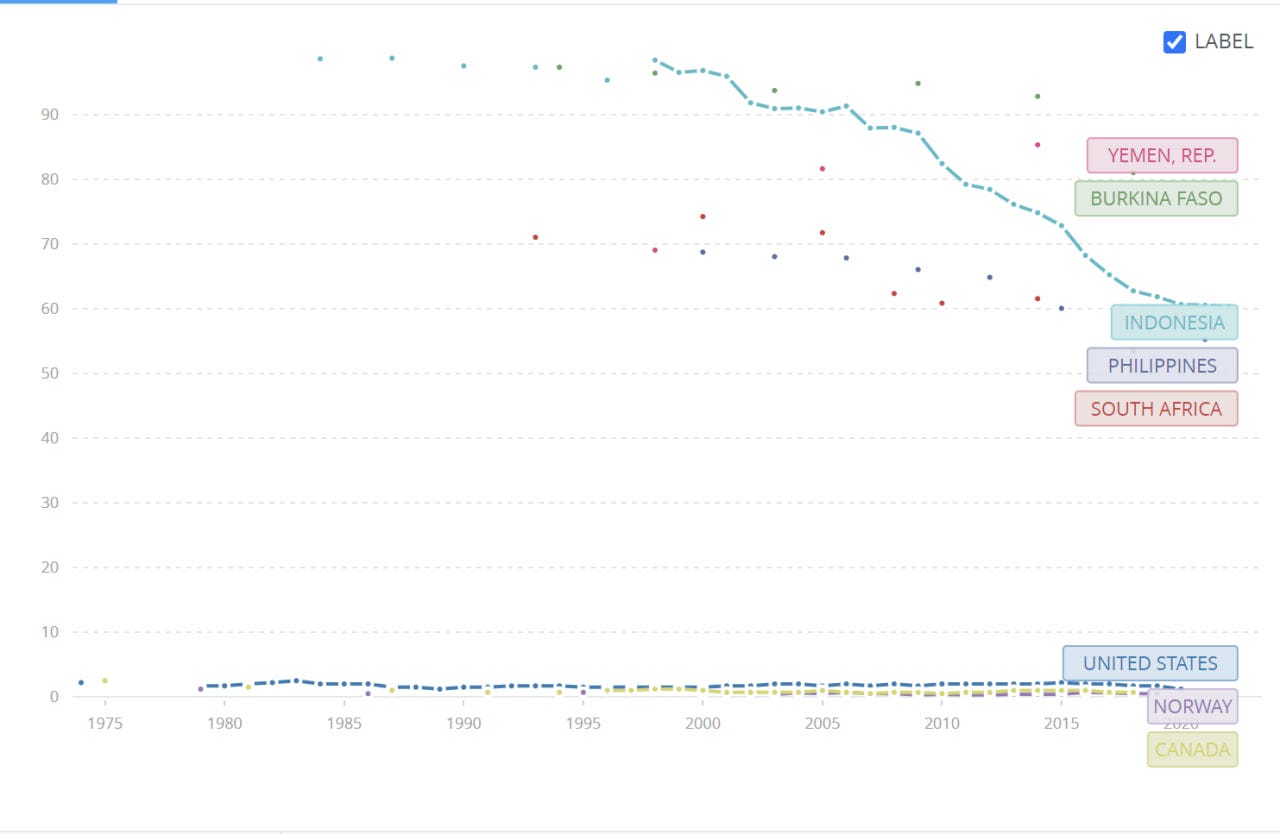
This tells us that there is little shared class interests between the American people (who overwhelmingly benefit from imperialism) and the people in the periphery and semi-periphery.
An anti-war movement inside the imperialist nations that is trying to organize on the basis of shared interests is not only useless, it is a deceptive activity. Those who promote this myth are opportunists at best and tools of US-led imperialism at worst.
Closing Thoughts
The world has already entered World War 3, it is a global hybrid war of US-led imperialism against the forces of the global south that are rejecting US hegemony. America is declining, but it has not yet lost its political or economic global dominance. The stakes are incredibly high.
Because of this, we must be sober in our analysis of history and identifying our friends and enemies. We should not wear rosy glasses in hopes that maybe something will be different this time around.
As we saw in the example of the first American invasion of Iraq, anti-war movement activities that do not threaten US-imperialism (or the monopoly capital behind it) are just another weapon against the exploited global south. As identified by Capasso and Kadri25:
demonstrators in a central metropolis of the US, such as New York, paying taxes to fund US military adventures, presume their social formation does not necessarily acquire surplus value by means of destruction. They postulate that their token activity, un-articulated with an opposing global power, sway capital away from its accumulation by waste production. Judging by the bloody trail of capital, far from achieving the desired results, their protests risk humanising imperialism and bestowing upon it a pseudo democratic guise.
In other words, given that US-led imperialist mass murder and militarism has only increased (and will continue to increase), these anti-war protests are only furthering the illusion of 'democratic dissent' (either that there are many ‘anti-war humanists' who care, and that there is actual space to oppose imperialism) in the imperial core.
Those inside the imperialist countries (especially the United States) who are genuinely interested in a type of class-suicide required to engage a genuinely anti-imperialist political practice must grapple with the realities exposed in this article.
There is—right now— a global movement happening that is genuinely anti-imperialist in character and actively engaged in the life and death struggle against the imperialist super-exploitation of people and land.
The currently existing American anti-war movement, however, is not a part of that struggle. Instead, it is a confidence scheme, a poison, and a self-gratifying maneuvering of opportunists in service of capital.
Matteo Capasso & Ali Kadri (2023) The Imperialist Question: A Sociological Approach, Middle East Critique, 32:2, 149-166, DOI: 10.1080/19436149.2023.2176943; Page 155
ibid. Page 160
False Nationalism False Internationalism; CHAPTER VI - THE VIETNAM CATALYST
“Fragging” during the Vietnam War
On the evening of October 22, 1970, Company L of the 3rd Battalion, 1st Marine Regiment was engaged in anti-infiltration operations in the “Rocket Belt,” an area of more than 500 square kilometers ringing the Da Nang Airbase. The company was set up in bunkers at an outpost on Hill 190, to the west of Da Nang. Assigned to guard duty that night, Private Gary A. Hendricks settled into his position on the perimeter and made himself comfortable. Too comfortable, it turned out. A bit later, when Sergeant Richard L. Tate, the sergeant of the guard, discovered Hendricks sleeping on post, he gave the private a tongue lashing but took no further action. Shortly after midnight the next day, Hendricks tossed a fragmentation grenade into the air vent of Sergeant Tate’s bunker. The grenade landed on Tate’s stomach and the subsequent blast blew his legs off, killing the father of three from Asheville, North Carolina, who had only three weeks left on his tour of duty. The explosion injured two other sergeants who were also in the bunker.
Government Accountability Office: Diversity, Inclusion, and Equal Opportunity in the Armed Forces 2019
Learn more here: https://aif.ru/society/history/lovushka_dlya_diktatora_pochemu_saddam_huseyn_reshilsya_napast_na_kuveyt
https://www.newyorker.com/magazine/1990/09/24/report-from-baghdad
https://www.theguardian.com/artanddesign/2015/jun/05/thats-me-picture-stuart-lockwood-saddam-hussein-iraq
The Association for Diplomatic Studies and Training Foreign Affairs Oral History Project STEPHEN THIBEAULT Interviewed by: Daniel F. Whitman Initial interview date: October 8, 2007 — Page 127 https://adst.org/OH%20TOCs/Thibeault-Stephen.pdf
Based on author discussions with previous Worker’s World Party members.
The anti-war organizations present make conflicting claims about the size.
Thousands Join War Protests Across U.S. https://www.latimes.com/archives/la-xpm-1990-10-21-mn-4291-story.html
“The Workers' Advocate” claimed 10,000 ,
An academic research paper places the number at 20,000 total across the entire US for the October 20th, 1990 protest; Swank, Eric; THE EBBS AND FLOWS OF GULF WAR PROTESTS; Journal of Political and Military Sociology 1997, Vol. 25 (Winter): 211-229
Muhammad Ali’s Strange, Failed Diplomatic Career
"Hussein used the hostages as human shields, housing them in locations where he thought Americans might drop bombs. In November, President George H.W. Bush sent Ali to Iraq to procure the Americans and bring them home.
The New York Times blasted the idea, calling it “surely the strangest hostage-release campaign of recent days” and reminding readers that Ali suffered from a “frequent inability to speak clearly.” It was true: by then Ali had been diagnosed with Parkinson’s disease, and needed medication to control his symptoms and tired easily. Joe Wilson, then the leading U.S. diplomat in Iraq, said that, “people traveling to Iraq are making a serious mistake.” Officials feared that the negotiators themselves would be kidnapped.
After a week in Baghdad, though, Ali inexplicably emerged with the 15 Americans, after all other attempts failed. Hussein reportedly told people that he would not let Ali leave empty-handed. Just weeks later, US bombing of Iraq began."
It is beyond the scope of this article to delve too deep into the various spy projects that Muhammad Ali carried out on behalf of the US government, it is definitely worth a future investigation. It’s hard to be an “anti-war hero” when you have received multiple awards from US presidents and openly embrace them (literally!)
Persian Gulf Hostages: A Case Study in Terrorism, Diplomacy, and Strategy; UNITED STATES. DEPARTMENT OF THE NAVY; 24 Apr, 1995; https://www.hsdl.org/c/view?docid=438962
Ibid. Page 53
Moments in U.S. Diplomatic History; Freeing American Hostages in the First Gulf War — Association for Diplomatic Studies and Training
Doran, Christopher; Making the World Safe for Capitalism: How Iraq Threatened the US Economic Empire and Had to be Destroyed; 2012;
The war has been an extension, and protection, of the same free market neoliberal policies which have driven successive American, British, and Australian governments over the past three decades. It was market access and control of the global economy that motivated the US to invade Iraq, not weapons of mass destruction, or ties to Al Qaeda, or a simplistic desire to seize Iraq’s oil. While consistent with those policies, invasion by military force was also an important—and frightening – new phase of US willingness to guarantee the survival of its global economic hegemony.
Tom Stevenson, in his article In the Grey Zone defines the four types of imperialist proxy wars:
”The first, ‘in it to win it’, is self-explanatory: the proxy is used to defeat an enemy’s forces. The second, ‘holding action’, involves the idea that the aim of an intervention by proxy may be to prolong a civil war in order to to maintain the status quo. The third type, perhaps the most common, is ‘meddling’. Here, the ideal outcome is for a proxy to change the course of a conflict, perhaps by overthrowing a government, although this is considered unlikely given the present balance of power. Even so, a proxy force can still be useful in interfering with the designs of others. The last type, ‘feeding the chaos’, is in most cases a matter for covert operations and occurs when a state has no achievable strategic aim but sees an advantage in prolonging the violence indefinitely.”
Capasso and Kadri, 2023, page 155



